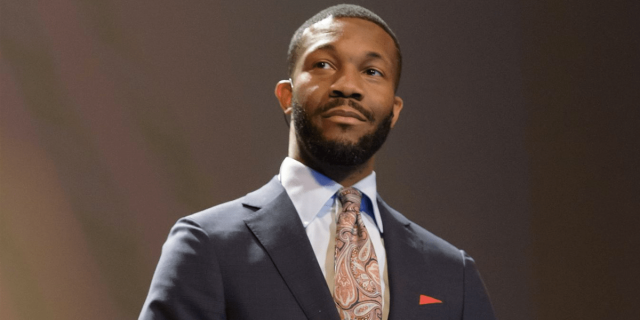By Ryan Michaels
The Birmingham Times
It didn’t take long for Birmingham Mayor Randall Woodfin to score his first major victory with a new city council.
On Wednesday a City Council committee voted to spend the remaining $35 million in federal COVID relief money on economic development, transportation and public safety, among other areas touted by the mayor, who began his second term just last week.
The council’s Committee of the Whole – consisting of three newly-elected members — voted to spend the $35,100,835 remaining from about $141 million from the American Rescue Plan (ARP) Funds. The full council could vote on the expenditure as soon as Tuesday.
In May, the city received its first half of the money and in June $17.5 million was used to pay one-time premiums to city employees for their service through the COVID pandemic. In August, another $18 million more was allocated for construction of the Birmingham Xpress bus rapid transit system.
All funds must be obligated by Dec. 31, 2024 and expended by Dec. 31, 2026.
On Wednesday, the committee voted to use remaining the $35 million from the first half of the funds in the following areas:
–$17 million: community and economic development
–$7.5 million: transportation
–$5 million: World Games support
–$3 million: community-based public safety
–$1.3 million: capacity (competitive grants, capital projects management etc.)
–$650,000-$900,000: critical workers (vacation buyouts for fire, police and public works employees)
If approved Tuesday, money for community and economic development will be used for purposes such as building homes, encouraging homeownership and aiding local businesses, according to documents distributed by the city.
Councilors and city officials have discussed putting ARP funds toward helping residents purchase new homes in areas such as Five Points West’s Belview Heights neighborhood.
Under the $3 million for “community-based public safety,” Mark Wilson, Jefferson County’s Health Officer, proposed using $2.1 million for a hospital-linked violence intervention program (HVIP).
The first year of the program would be fully funded by the Jefferson County Department of Health (JCDH), and the $2.1 million from the city would help fund the project after the first year, said Wilson, who added HVIP could break “the cycle of violence.”
“[The hospital] is a setting and a time that offers a unique opportunity to intervene in the victim’s life,” Wilson said, “reducing the chances of them becoming a repeat victim of violence and to help prevent retaliation.”
In March, President Joe Biden signed the American Rescue Plan (ARP) into law, which gave $1.9 trillion to states across the country for the purpose of helping the nation recover from economic losses due to the COVID-19 pandemic. Here’s a breakdown of the city’s remaining $35,100,835:
COMMUNITY & ECONOMIC DEVELOPMENT |$17 million
COVID Response for Existing Small Businesses
Microloans for New Small Business Starts
Site Acquisition & Remediation
Attracting Conferences & Conventions
Reimagining Shuttered Schools
Affordable Home Ownership
Homelessness Support
District-Specific & City-Wide Councilor Projects
TRANSPORTATION | $7.5 million
Via Expansion
Birmingham Jefferson County Transit Authority
COB OPERATIONAL AND FACILITIES FUNDING SUPPORT FOR WORLD GAMES | $5 million
Security Upgrades & Critical Repairs to Facilities
Operational Equipment
COMMUNITY-BASED PUBLIC SAFETY | $3 million
Hospital-Linked Violence Intervention Program
CAPACITY | $1.3 million
Competitive Grants
Equity, Impact & Community Engagement
Accounting Compliance
Capital Projects Management
CRITICAL WORKERS | $650,000-$900,000
Fire, Police, and Public Works Employee Vacation Buyout Calendar Year 2020
Updated at 10:02 a.m. on 12/3/2021 to add deadlines on the spending.





